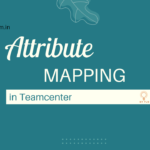Siemens PLM software suite, Teamcenter, serves as an integral platform for managing product lifecycle data across various industries. Within this powerful toolset, two key concepts—Corporate Servers and Volume Servers—play pivotal roles in optimizing data management and collaboration. In this post, we will delve into these essential components to better understand their functions and benefits within Teamcenter.
Table of Contents
Corporate Servers
A Corporate Servers (CS) represents the central hub where all Teamcenter-managed data resides. It acts as a single source of truth that ensures consistency throughout the organization by providing access to up-to-date information. The CS maintains a complete history of changes made to items such as CAD files, BOMs, and other engineering documents. This feature enables users to easily trace back any modifications or revert to previous versions if needed. The CS also provides robust security features through role-based permissions, ensuring only authorized individuals have access to specific data sets. Additionally, it offers scalability options, allowing organizations to grow with ease without compromising performance or functionality.
Volume Servers
In contrast to the CS, which manages global data, Volume Servers (VS) are designed to handle localized data needs more efficiently. A VS can be thought of as a satellite server that stores copies of selected data from the CS, making it accessible to users who may not require constant connectivity to the main repository. By caching frequently accessed data locally, VS reduces network traffic and improves response times for users working remotely or offline. When connected to the CS, VS automatically synchronizes updates between the servers, ensuring that both systems remain consistent. However, when disconnected, users can continue working with cached data until they regain connection to the CS.
Benefits of Using Corporate and Volume Servers
By implementing corporate and volume servers, Teamcenter users experience several advantages:
- Improved performance due to reduced network load and faster access to data.
- Enhanced user productivity thanks to quicker response times and seamless integration with local applications.
- Increased flexibility and adaptability as organizations scale up or down according to changing business requirements.
- Streamlined workflows and improved collaboration among team members located at different sites.
- Reduced risk of data loss during system failures or unexpected events since multiple copies of critical data exist.
Teamcenter’s corporate and volume servers provide a comprehensive solution for managing complex product development processes while maintaining high levels of efficiency and reliability. As organizations increasingly rely on digital tools to drive innovation and growth, understanding how to leverage these capabilities becomes even more crucial.
Read More Articles
Exploring the Power of Tiles in Teamcenter’s Active Workspace Client
Understanding the Contrast: Volume vs. Database in TC
Exploring TC: The Central Hub for Product Lifecycle Management
Understanding Item Revision in TC: A Comprehensive Guide
Unlocking Efficiency and Precision: Understanding Workflow Designer in TC
Understanding PLM (Product Lifecycle Management): A Comprehensive Guide
Demystifying BMIDE in TC: Empowering Effective PLM Solutions
Understanding Organizations in TC: Building Efficient Work Structures
Demystifying Datasets in TC: A Comprehensive Guide
A Step-by-Step Guide to Installing TC Software
Revealed Pseudofolders in Siemens TC: Simplifying Data Management for Engineers
Unlocking TC’s Potential: A Guide to Creating Custom Properties
Unlocking Efficiency and Precision: Understanding Workflow Designer in TC
Understanding PLM (Product Lifecycle Management): A Comprehensive Guide
Demystifying BMIDE in TC: Empowering Effective PLM Solutions
Understanding Organizations in TC: Building Efficient Work Structures
Demystifying Datasets in TC: A Comprehensive Guide
A Step-by-Step Guide to Installing TC Software
Revealed Pseudofolders in Siemens TC: Simplifying Data Management for
Exploring the Power of Tiles in Teamcenter’s Active Workspace Client
Understanding the Contrast: Volume vs. Database in TC
Exploring TC: The Central Hub for Product Lifecycle Management
Understanding Item Revision in TC: A Comprehensive Guide
Unlocking Efficiency and Precision: Understanding Workflow Designer in TC







